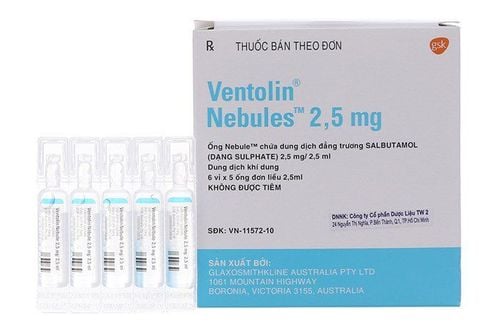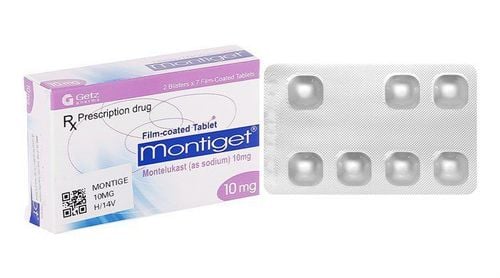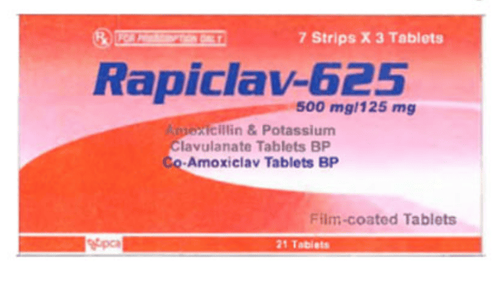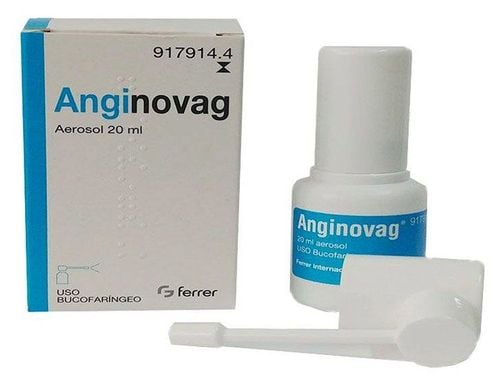The human body constantly produces mucus in the throat, and the formation of phlegm is a normal response to infections. This is a common occurrence for most people and is usually not too dangerous. However, in some cases, a sore throat accompanied by phlegm can be a sign of various diseases.
1. What Causes a Sore Throat with Phlegm?
The throat is a part of the respiratory system that is easily affected by changes in weather, living in polluted environments, bacterial infections, and other factors. When the throat is sore and accompanied by a cough with phlegm, it could be a sign of various diseases.
Coughing up phlegm along with a sore throat usually occurs when the respiratory tract has many impurities. Phlegm is a secretion from the respiratory tract, including the trachea, bronchi, throat, and nasal cavity, consisting of mucus, harmful substances, red blood cells, and white blood cells. The body will naturally react by coughing to expel the phlegm, cleaning the lungs and removing secretions from the respiratory tract.
2. What Diseases Can Cause a Sore Throat with Phlegm?
Besides common illnesses like the flu, phlegm and a sore throat can be signs of many different diseases. These could be the result of pharyngitis, bronchitis, pneumonia, asthma, and more.
Pharyngitis: This is the most common condition causing a sore throat with phlegm. Pharyngitis is mainly caused by infections that make the throat lining sore and swollen. Symptoms of pharyngitis often include phlegm, difficulty swallowing, fever, swollen lymph nodes, and headaches. If not treated promptly, it can damage the larynx and spread to other organs like the vocal cords and nose.
Laryngitis: This condition involves inflammation of the vocal cords, causing symptoms like a sore throat with phlegm. The main cause is the swelling of the vocal cords, which narrows the airway. Most cases of laryngitis are due to influenza A or B viruses, but it can also be caused by weather changes, streptococcal infections, and pneumococcal infections.
Tonsillitis: A sore throat with phlegm can also be a symptom of tonsillitis. This disease is caused by bacteria invading the tonsils, making them swollen and causing the throat to narrow, leading to pain, difficulty speaking, phlegm, fever, and fatigue. Tonsillitis is not difficult to treat if managed properly and with adequate rest, but if it becomes severe, surgery to remove the tonsils may be necessary.
Nasopharyngeal Cancer: This is the most dangerous condition that can occur with a sore throat and phlegm. At this stage, a malignant tumor has developed in the nasopharynx, causing symptoms like coughing, sore throat, phlegm, hoarseness, weight loss, and difficulty chewing and swallowing. Like other cancers, nasopharyngeal cancer is a leading cause of death each year.
Flu: This is a common respiratory illness, especially in children under 5, the elderly, pregnant women, and those with weakened immune systems. After the virus invades, symptoms will appear within 24 to 48 hours, including sore throat, phlegm, high fever, headache, and chills. Simple flu can be treated with rest and medication, but flu caused by H5N1 or H1N1 viruses requires hospital treatment to prevent spreading to others.

3. Home Remedies for Sore Throat with Phlegm
A sore throat with phlegm is a sign of many different diseases, so each condition has its own treatment method. For simple illnesses like the flu or pharyngitis, a sore throat with phlegm is not too dangerous, but the symptoms can be uncomfortable, making it difficult to communicate and eat. Here are some simple home remedies to reduce pain and recover quickly:
Drink Plenty of Water: Drinking warm water, fruit juices, hot soups, and broths can help keep the throat moist, thin the phlegm, and increase the flow of respiratory secretions.
Gargle with Salt Water: Rinsing the throat and nose with saline solution twice a day can help remove dirt, mucus, and phlegm from the throat, soften the mucous membranes, and expel impurities. Proper gargling involves holding the salt water in the throat for about 30 seconds before spitting it out and rinsing with regular water. Avoid gargling with salt water for too long to prevent tongue irritation and throat damage.
Maintain Humidity: Keeping the living environment and surrounding air humid can reduce throat pain. Using a humidifier can help maintain air moisture throughout the day, but be careful not to over-humidify to prevent mold growth.
Healthy Diet: A weak immune system can make you more susceptible to diseases. Strengthen your health from within by eating plenty of green vegetables, fruits, and foods like honey, ginger, and lemon. Avoid stimulants like caffeine, tobacco, alcohol, and overly salty or fatty foods. Drinking a glass of warm water before bed can soothe the throat and maintain moisture.
Avoid Dusty Areas: Stay away from areas with a lot of dust, pollen, and mold, which can cause irritation. If you must be in such environments, wear a mask to protect your respiratory system. Avoid shouting or talking too much, especially if you have laryngitis, as these actions can worsen the condition.
The quickest and most effective treatments involve using Western medicine when the condition is caused by bacteria or other objective factors. Home remedies can only provide support and are unlikely to completely cure the condition. Different causes of illness and individual constitutions require the use of appropriate medications. You need to use medications as directed by your doctor or pharmacist, as they will base their prescriptions on each person's condition and medical history. Commonly used medications include antibiotics, pain relievers, cough medicines, and expectorants. To ensure the effectiveness of the medication and avoid adverse effects, you must use the medication in the correct dosage, at the right time, and according to the instructions. You can also use cough syrups and lozenges to reduce throat pain.

This is usually not a cause for concern, but throat pain with phlegm can also be a sign of serious conditions such as nasopharyngeal cancer. Therefore, it should not be ignored. If the condition does not improve and worsens, accompanied by allergies, coughing up blood, chest pain, difficulty breathing, wheezing, or if the condition persists for more than a month, you need to see a doctor immediately to prevent the illness from becoming severe.
To arrange an appointment, please call HOTLINE or make your reservation directly HERE. You may also download the MyVinmec app to schedule appointments faster and manage your reservations more conveniently.













